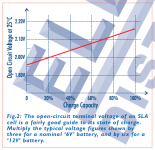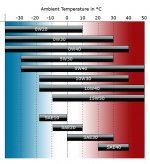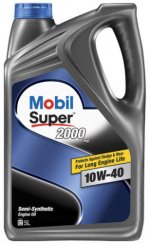THE BEST protection for vehicle electrical connections is Petroleum Jelly.
Not in Australia. It gets too hot here under a cars bonnet, I've tried it and within a few weeks/months its gone, vaporised.
There is a specific gel which can be used for this task.
Permatex Battery Protector & Sealer - 141g - Supercheap Auto
The idea of using boiling water is solid advice though.
Last edited:
I checked the voltage drop from chassis to battery and block to battery both unloaded and loaded and it was minisucle (around 0.01 to 0.02 V) So I think that the earths are good (tested same alternator body to battery.
Also the voltage at the battery is 14.2V unloaded at first start up but drops by about 0.4V once the alternator has warmed up.
With almost everything on (low beam, high beam, fog lights, defrosters cabin fan on full, hazzard lights) voltage at the battery (idling) was around 13.1V, when revving up the engine that went up to 13.7V.
The battery seems to be holding charge well. Cranking over much quicker than before even after a week of short trips after fixing the faulty cable.
So I'm thinking whilst it is possible the diode pack/regulator may not be 100% well, it is actually doing ok.
I think the burning bakelite smell may actually have been the insulation on the starter solenoid where the cable attaches. It was that end where I believe the "high" resistance was, and with 70 - 80A passing through it, it would certainly heat up!
Tony.
Also the voltage at the battery is 14.2V unloaded at first start up but drops by about 0.4V once the alternator has warmed up.
With almost everything on (low beam, high beam, fog lights, defrosters cabin fan on full, hazzard lights) voltage at the battery (idling) was around 13.1V, when revving up the engine that went up to 13.7V.
The battery seems to be holding charge well. Cranking over much quicker than before even after a week of short trips after fixing the faulty cable.
So I'm thinking whilst it is possible the diode pack/regulator may not be 100% well, it is actually doing ok.
I think the burning bakelite smell may actually have been the insulation on the starter solenoid where the cable attaches. It was that end where I believe the "high" resistance was, and with 70 - 80A passing through it, it would certainly heat up!
Tony.
Not in Australia. It gets too hot here under a cars bonnet, I've tried it and within a few weeks/months its gone, vaporised.
There is a specific gel which can be used for this task.
Permatex Battery Protector & Sealer - 141g - Supercheap Auto
I didnt factor your climate..... use HT copper grease in place of PJ.
Sounds about right to me - nice job.I checked the voltage drop from chassis to battery and block to battery both unloaded and loaded and it was minisucle (around 0.01 to 0.02 V) So I think that the earths are good (tested same alternator body to battery.
Also the voltage at the battery is 14.2V unloaded at first start up but drops by about 0.4V once the alternator has warmed up.
With almost everything on (low beam, high beam, fog lights, defrosters cabin fan on full, hazzard lights) voltage at the battery (idling) was around 13.1V, when revving up the engine that went up to 13.7V.
The battery seems to be holding charge well. Cranking over much quicker than before even after a week of short trips after fixing the faulty cable.
So I'm thinking whilst it is possible the diode pack/regulator may not be 100% well, it is actually doing ok.
Seeing 14.2v after start-up is a very good sign; it's not 'unloaded' but actually the point at which the alt is pouring current back into the SLA to replenish the lost start charge (e.g. clamp meter test on my E39 5-series I see 50-60A here... for 30s or so - at idle!) - so holding such a high output V is spot-on. That alone looks good to me.
As for your other comments - SLA batteries are at full charge at c. 12.8v utterly unloaded/disconnected; so never seeing below 13.1v with a full system load is solid enough - it's not loading the battery; and that 13.8ish is ideal long term 'float' charge voltage.
Remember for SLAs there's a slight negative temp dependence for ideal charging volt vs temp, (? c.10mV/degC iirc)- so where you are, giving up handful of tenths of a volt is likely right. System voltage dropping a couple of tenths isn't to be worried about - it's likely to the be the reg in the alt doing such deliberately (the temp compensation is v old tech long incorporated - even dynamo regs from the 1950s have it)
ETA: a useful chart - at ~20degC. note when connected in the car, even when not running, it's still likely supplying 20-30mA to maintain body electronics, clock, alarm, ecu watchdogs etc: it's not disconnected - expect a .1v or so lower than predicted here.
Attachments
Last edited:
I'm probably going to have to move up from 10w30 to 10w40 due to the ridiculous 47c heat here at the moment.
But I drove my car in this heat yesterday and it didn't sound like it was having troubles.
Attached Pic taken from carbibles.com: Car Bibles : The Engine Oil Bible
But I drove my car in this heat yesterday and it didn't sound like it was having troubles.
Attached Pic taken from carbibles.com: Car Bibles : The Engine Oil Bible
Attachments
Anyone in NE US with a Tesla or other EV? Given that most battery tech,and Li-ion very much so does not like serious sub zero temps (eg http://www.diyaudio.com/forums/the-lounge/143603-buy-79.html#post5300060), how are the vehicles doing in the serious sub zero temps?
Last edited:
Oleje silnikowe zestawienie / Engine oils Summary - Google Sheets
My opinion is only of interest for people in warm climates:
After reading this extensive list of testing oils for friction from the youtube channel "Piotr Tester": YouTube
I've concluded that the best brand and viscosity with the lowest friction out of a few final choices is the Mobil 1 Super 2000 X1. My choices were limited by availability here in Australia. None of the local oil manufacturers such as Nulon are listed. However Penrite is, and if I had no choice and couldn't find Mobil 1 I would choose Penrite 5w40, as you can see in the chart above a 5w40 oil will do all climates including cold and hot all the way up to 50 deg c ambient temperatures.
3rd choice: The Castrol Magnatec 10w40 score is: 0.05 cold and 0.1 hot (100 deg c)
1st choice: The Mobil 1 Super 2000 X1 10w40 score is: 0.07 cold and 0.01 hot (100 deg c)
2nd choice: Penrite HPR 5 5w40 score is: 0.07 cold and 0.06 hot (100 deg c)
The Mobil 1 Super 2000 loses out just by a hair in cold starting operation but wins hands down in hot operating temp.
And Mobil 1 Super 2000 X1 isn't available anywhere, only Mobil 1 Super 2000 X2 is. Also Mobil 1 oil isn't available or sold at supercheapauto which can be a problem for some, to find it you have to go to autobarn or shop around or buy it on eBay.
This is assuming that X1 is the same quality as X2. Ie that the testing isn't out of date. X1 is apparently obsolete.
My opinion is only of interest for people in warm climates:
After reading this extensive list of testing oils for friction from the youtube channel "Piotr Tester": YouTube
I've concluded that the best brand and viscosity with the lowest friction out of a few final choices is the Mobil 1 Super 2000 X1. My choices were limited by availability here in Australia. None of the local oil manufacturers such as Nulon are listed. However Penrite is, and if I had no choice and couldn't find Mobil 1 I would choose Penrite 5w40, as you can see in the chart above a 5w40 oil will do all climates including cold and hot all the way up to 50 deg c ambient temperatures.
3rd choice: The Castrol Magnatec 10w40 score is: 0.05 cold and 0.1 hot (100 deg c)
1st choice: The Mobil 1 Super 2000 X1 10w40 score is: 0.07 cold and 0.01 hot (100 deg c)
2nd choice: Penrite HPR 5 5w40 score is: 0.07 cold and 0.06 hot (100 deg c)
The Mobil 1 Super 2000 loses out just by a hair in cold starting operation but wins hands down in hot operating temp.
And Mobil 1 Super 2000 X1 isn't available anywhere, only Mobil 1 Super 2000 X2 is. Also Mobil 1 oil isn't available or sold at supercheapauto which can be a problem for some, to find it you have to go to autobarn or shop around or buy it on eBay.
This is assuming that X1 is the same quality as X2. Ie that the testing isn't out of date. X1 is apparently obsolete.
Attachments
Last edited:
Nifty idea, getting you own vehicle's oil tested...
Blackstone Labs
The Oil Lab - Oil and fuel testing service - The Oil Lab
https://www.blackstone-labs.com/Newsletters/Gas-Diesel/July-1-2017.php
Blackstone Labs
The Oil Lab - Oil and fuel testing service - The Oil Lab
https://www.blackstone-labs.com/Newsletters/Gas-Diesel/July-1-2017.php
Last edited:
I have been using a version of Mobil 1 that is marketed for diesels, however, if one reads the data sheet it is stated that it can be used in gas engines as well. It’s the 5W40.
I have a particularly fussy engine for carbon deposits in the rings, and this variety works well, so far...
Got this car (2009 Corolla 2.4L 5spd) with 70k on the clock, idled smooth as glass. A compression test revealed that it was low. After some questionable engineering using very caustic cleaners down the cylinders, the compression is back up in the healthy range, and the idle is what would be expected from a normal inline 4 cylinder engine.
Also the consumption of oil has gone from 1 quart/2,000 miles to almost none.
I did some reading back then about oils, don’t recall the royal purple doing that great.
Amsoil did better, but that was a test where a long interval was conducted.
I have a particularly fussy engine for carbon deposits in the rings, and this variety works well, so far...
Got this car (2009 Corolla 2.4L 5spd) with 70k on the clock, idled smooth as glass. A compression test revealed that it was low. After some questionable engineering using very caustic cleaners down the cylinders, the compression is back up in the healthy range, and the idle is what would be expected from a normal inline 4 cylinder engine.
Also the consumption of oil has gone from 1 quart/2,000 miles to almost none.
I did some reading back then about oils, don’t recall the royal purple doing that great.
Amsoil did better, but that was a test where a long interval was conducted.
I'm going to be going with the Elf evolution 900 5W-50 next time. I've been running elf oil for years now, on my Mechanic's recommendation (he builds race engines).
It rates 0.08 cold, 0.01 hot and 8 on the clean test. The only thing I was a bit concerned with was the 5 rating, since my engine has done 260,000 odd KM. I think I'm running 10W-50 at the moment, Elf keeps changing what is available, which is a little annoying.
Not sure of the price, I think I baulked last time, probably around the $90 for 5l mark...
Tony.
It rates 0.08 cold, 0.01 hot and 8 on the clean test. The only thing I was a bit concerned with was the 5 rating, since my engine has done 260,000 odd KM. I think I'm running 10W-50 at the moment, Elf keeps changing what is available, which is a little annoying.
Not sure of the price, I think I baulked last time, probably around the $90 for 5l mark...
Tony.
I'm on more of the skeptical side when it comes to car oil. I bought a bunch of pennzoil 10w30 synthetic that i use for just about everything that i bought from walmart. I have some 5w20 synthetic castrol for my newer cars that i bought at costco.
The motor oil threads are a big deal at the dirt bike forum i hang out. Lots of motivation, whether to protect $$$ modified bikes, or to avoid the expense of buying motorcycle certified oils in 1L containers. I bought some mobil 1 15w50 in 1L containers on sale, but when that runs out i plan to go to shell rotella 15w40.
The motor oil threads are a big deal at the dirt bike forum i hang out. Lots of motivation, whether to protect $$$ modified bikes, or to avoid the expense of buying motorcycle certified oils in 1L containers. I bought some mobil 1 15w50 in 1L containers on sale, but when that runs out i plan to go to shell rotella 15w40.
Imho there is much less difference between engine oils than "marketing" wants you to believe.
As long as it fulfills certain specs (10W....) you should be alright.
A serious motor oil thread on this forum would probably look like a capacitor thread. There would be automotive engineers arguing they designed the engine to meet warranty with any oil that meets spec, and there would be the black gate guys, which is maybe royal purple or amsoil?
Yeah,^, big time...
Pretty subjective topic to say the least.
In an ideal situation it really shouldn't make a difference which brand of oil. The well made engines will run fine on cheap oil.
I have a bit of a unique situation with my klunker toyota soot clogging lump.
Spark plugs are another one where everyone has a different choice.
Pretty subjective topic to say the least.
In an ideal situation it really shouldn't make a difference which brand of oil. The well made engines will run fine on cheap oil.
I have a bit of a unique situation with my klunker toyota soot clogging lump.
Spark plugs are another one where everyone has a different choice.
Without reading the article too thoroughly I would disqualify it as useful, it's very simple, starting a car engine on cold winter day here in Finland has the wearing equivalence of driving a warm engine from Helsinki to Utsjoki which is something like 1000 kilometers, back to the article, the only thing I have to do is hit the "search" and look for the words "cold" or "winter", if these words are not there then they have missed the big elephant, wear test running a warm engine is only a fraction of the culprits choosing a good engine oil.
There are so many more things to it than just the wear test running a warm engine which most engine oil brands will pass, for instance how long does the oil keep its viscosity (important!), does it fume, does it keep the engine clean etc.
Generally I would stick with the known brands Shell or Mobil fully synthetic, perhaps Castrol and Vavoline and some other known brands are ok too, I once ca 10 years ago did buy a fully synthetic 5W40 of a lesser brand and my car which has quite many kilometers behind started to smoke and did also smell badly, I changed it the next day to a known brand and the bad smelling smoke was gone, not going to save few Euros on oil which is changed maybe only ones a year.
Last edited:
Can you back this up with evidence that this can be tested so easily?
No.
I would think there are multiple mechanisms and conflicting properties to actually test something so complex as cold startup wear.
Agree.
Last edited:
A serious motor oil thread on this forum would probably look like a capacitor thread. There would be automotive engineers arguing they designed the engine to meet warranty with any oil that meets spec, and there would be the black gate guys, which is maybe royal purple or amsoil?
100%.
- Home
- Member Areas
- The Lounge
- The car thread


